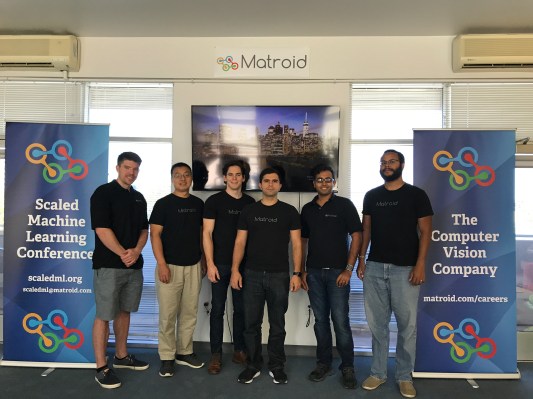As computer vision and object recognition technology continue to mature, we’re edging closer to automating away the exceedingly boring task of monitoring closed circuit TV cameras. Matroid is one of the startups leading the democratization of this variety of machine intelligence. The company is announcing a $10 million Series A this morning from NEA and Intel Capital that brings Matroid’s total financing to $13.5 million.
We first wrote about Matroid’s web platform for building custom video recognition detectors back in May. Customers can use their own videos and images to train detectors to recognize anything they want within videos or streams. This is a far more democratized approach than more traditional object recognition APIs.
In terms of commercialization, founder Reza Zadeh is focusing on the security and media markets for now. Fortune 500 companies will pay to monitor when their brands and key executives are featured on TV channels (check out Face-O-Matic for a political example of this). Meanwhile, other businesses will pay for a system to play the role of CCTV monitor, observing camera footage for long periods of time and flagging abnormalities for reference.
In addition to today’s financing, Matroid is announcing that it is working with Intel to assist them with executing computer vision tasks on their chips. Instead of building its own computer vision-enabled hardware, Matroid is building inroads inside the hardware ecosystem to implement its technology. Zadeh defends this move by asserting that building hardware is effectively a race to the bottom.
“Eventually all cameras will have some ability to understand what they’re looking at,” Zadeh explained to me in an interview.
This makes a lot of sense — it’s tough to do all of the real time analysis necessary in the cloud and edge computing is having something of a renaissance. So to start, Intel is acting as a customer of Matroid as well as a strategic investor assisting with go-to-market.
Zadeh is leveraging his connections as a Stanford professor to build a community around Matroid. His Scaled Machine Learning conference brought together researchers from Google, Intel, NVIDIA and OpenAI, among other companies and institutions. These experts are helping to support the creation of new and shareable detectors on Matroid.
